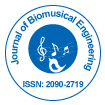Commentary
Post-War Modernism and the Music Classroom
Piers Spencer*
DPhil, Exeter, Devon, UK
- *Corresponding Author:
- Piers Spencer
DPhil, Exeter
Devon, UK
Tel: 01392 677950
E-mail: spencerpiers@blueyonder.co.uk
Received date: Jan 02, 2016; Accepted date: Mar 16, 2016; Published date: Mar 18, 2016
Citation: Spencer P (2016) Post-War Modernism and the Music Classroom. J Biomusic Eng 4:113. doi:10.4172/2090-2719.1000113
Copyright: © 2016 Spencer P. This is an open-access article distributed under the terms of the Creative Commons Attribution License, which permits unrestricted use, distribution, and reproduction in any medium, provided the original author and source are credited.
Abstract
During the late 1960s, music educators introduced the of post-war modernism (otherwise known as the avant-garde) into British classrooms. As a result, creative music making, composing and improvisation, became an established part of the curriculum. However the actual idioms of musical modernism have largely vanished from . The writer explores the reasons for this decline, while acknowledging that some positive features of modernism may still have much to offer teachers and pupils.
